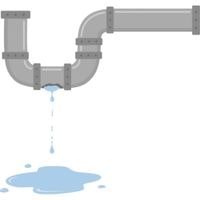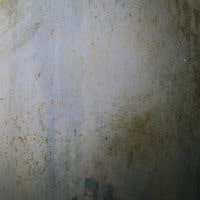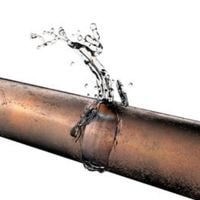How Do You Know If Your Pipes Burst. It doesn’t get any worse than the sinking feeling that is brought on by a water leak.
It’s important for homeowners to consider preventative measures because water damage can cause significant problems if it’s ignored and left untreated.
If a pipe bursts, one needs to act quickly in order to limit costly repairs and to ensure that they don’t face problems with the proper functioning of their home going forward ahead.
Luckily, taking the following action steps can help financially before dealing with the even more expensive cost of repairs and replacements.
How Do You Know If Your Pipes Burst
In this article, we discuss how to determine if your pipes have burst.
Problems Related To Mold
Excess moisture in your house because of a burst pipe can result in mold problems. If you notice that there is a massive amount of mold or musty smell in your home.
It is vital that you call a professional plumber to investigate and find out what the root cause of this problem is before it gets any worse.
Rotten Egg Smell
When you notice a busted pipe, you’re instantly wary of water damage. And if you smell sewage, there are concerns that it could seep into the surrounding rooms and cause even more harm.
Luckily, sometimes a faint rotten-egg odor coming from your drains only indicates that there is some excess hydrogen sulfide.
This occurs naturally in sewer lines and can quickly be dealt with by the right professional plumbers. It’s best not to take risks when it comes to your home plumbing system.
Water Marks On Wall
Another symptom of a burst water pipe is watermarked on the walls. Most pipes are buried in the wall, but if they’re leaking or burst.
The water can trickle down the walls and leave dirt and minerals behind, which stick around for a while and can be hard to remove.
You may notice the dampness on the wall, a squishy area, or rust spots as well. It’s important to call a plumber as soon as you catch these symptoms because otherwise, you could end up with more serious problems later on.
Hearing Water Noise
If you don’t hear water running in your house, there shouldn’t be any hissing noises or gurgling sounds coming from the walls.
If you do notice a sound like this the issue is likely to be related to leaky pipes that are having problems with pressure.
It’s louder in pipes with small diameters and if you have ever had an issue of fluctuating pressure in your home then chances are it could be much louder as these appliances also require water flow to start up or change their speed. In addition, it gives a chance to identify if a water pipe has burst.
Increasing Water Bills
You may have an unexplained leak impacting your house if your water bill suddenly becomes a lot more expensive without any major changes in the amount of water you or your loved ones consume in your residences.
Even if there is no obvious evidence of leaking water, contact a plumber to assist in determining the exact location of the leak.
This way, you’ll be able to get it rectified before the damage gets out of hand and becomes too much for you to handle during this hectic period.
FAQs
Is it possible to hear pipes burst?
The expansion of ice or high water pressure may cause pipes to vary. The threat of bursting is amplified by weakened areas in the pipes which sound like a pop-like echo similar to a car backfiring for example!
Although many property owners don’t hear when pipes burst if you do in fact happen to notice this loud noise consider having your plumbing system looked at.
When a pipe bursts, what happens?
In the event that the pipes burst, water can move into your home, causing leaks, flooding, and damage to the floors, ceilings, walls, wiring, and other structural components of your home.
In the event that the moisture is not cleaned up properly, it can lead to the growth of mold.
If water gets into your walls, what happens?
If water gets into your framing materials, insulation, or drywall, then it may cause destructive developments that can invite mold growth, electrical fires, and shock hazards.
It’s important to note that water damage can be a potential fire hazard because of the way water destroys the integrity of electrical wire components.
Related Guides
